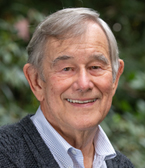Among the most controversial issues in the heated public debate over school vouchers is the question of which families are most likely to leave the public sector and enroll their children in private schools if given the opportunity. Critics assert that the parents most likely to opt for vouchers will be those who are already most involved in their children’s education—which, on average, will mean the parents of the most motivated and gifted students.
Choice
Examined the effects of school vouchers on student test scores in three U.S. cities. Data from randomized field trials indicated that after 2 years, African Americans who switched from public to private schools improved academically relative to their public school peers in all three cities. These effects were not significant for other ethnic groups.
In 1997, the School Choice Scholarships Foundation (SCSF) announced that it would provide 1,300 scholarships so that children of low-income families in grades K–4 in the New York City public schools could transfer to private schools. Each scholarship, or “voucher,” was worth up to $1,400 annually and could be used for up to four years at a religious or a secular school. The SCSF received applications from more than 20,000 students from February through April 1997. From the pool of applicants, scholarship recipients were selected in a lottery held in May 1997.
This volume brings together the most current empirical research on two important innovations reshaping American education today-voucher programs and charter schools. Contributors include the foremost analysts in education policy. Of specific significance is cutting-edge research that evaluates the impact of vouchers on academic performance in the New York City, Washington, D.C., and Dayton, Ohio, school systems. The volume also looks beyond the American experience to consider the impact of market-based education as pioneered by New Zealand.
In the fall of 1997, the Washington Scholarship Fund (WSF) announced the expansion of a privately funded school voucher program in Washington, D.C. originally established in 1993. In the spring of 1998, over six thousand students from public and private schools applied to the new program; of these initial applicants, over one thousand were offered scholarships—809 of whom were attending public schools at the time.
In the spring of 1998, Parents Advancing Choice in Education (PACE), a privately funded non-profit corporation, offered low-income parents within the Dayton metropolitan area an opportunity to apply for a scholarship to help defray the costs of sending their child to private schools in Dayton and other parts of Montgomery County, Ohio. All students from low-income families entering a grade between kindergarten and twelfth grade were eligible. PACE offered scholarships to 515 students who were in public schools at the time and 250 students who were already enrolled in private schools.
In 1999, the Children’s Scholarship Fund (CSF) announced that it would award scholarships enabling low-income families across the United States to send their children in grades K-8 to the private school of their choice. The families of over 1.25 million children applied for scholarships; 40,000 were awarded. Because more families applied than could receive scholarships, recipients were chosen by lottery, enabling the research methodology of a randomized field trial to evaluate the program.
In 1998, the Bay Area Scholarships for Inner-city Children (BASIC) Fund was created to give low-income families scholarships to attend registered private schools in Marin, San Francisco, or San Mateo County. This evaluation presents the results of a survey of BASIC Fund scholarship parents and students who moved from public schools to private schools.

